Tour de France: Dan Martin goes all in with Col du Portet attack
Irishman climbs one spot in overall classification
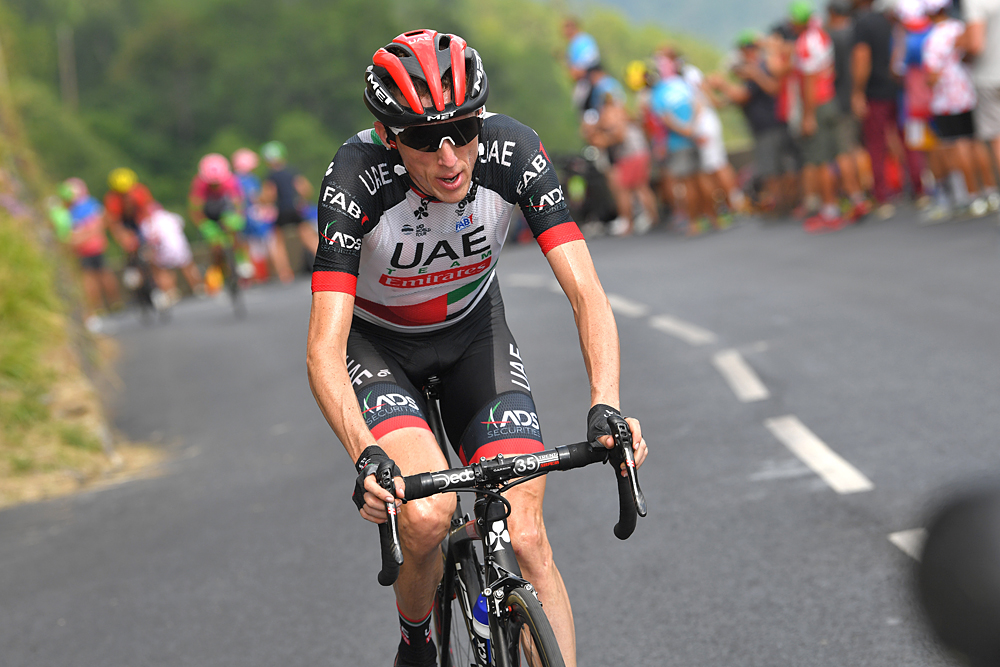
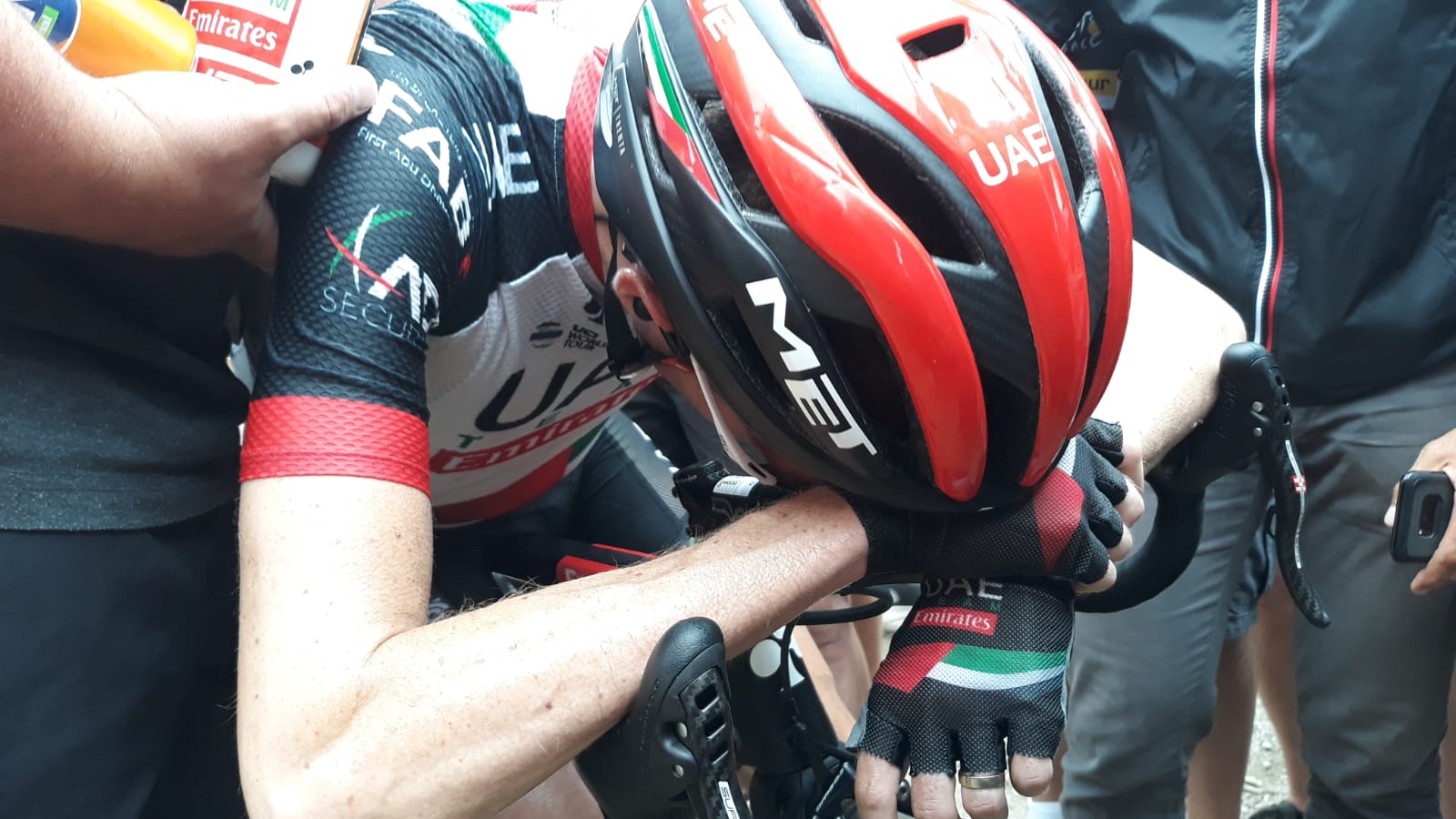
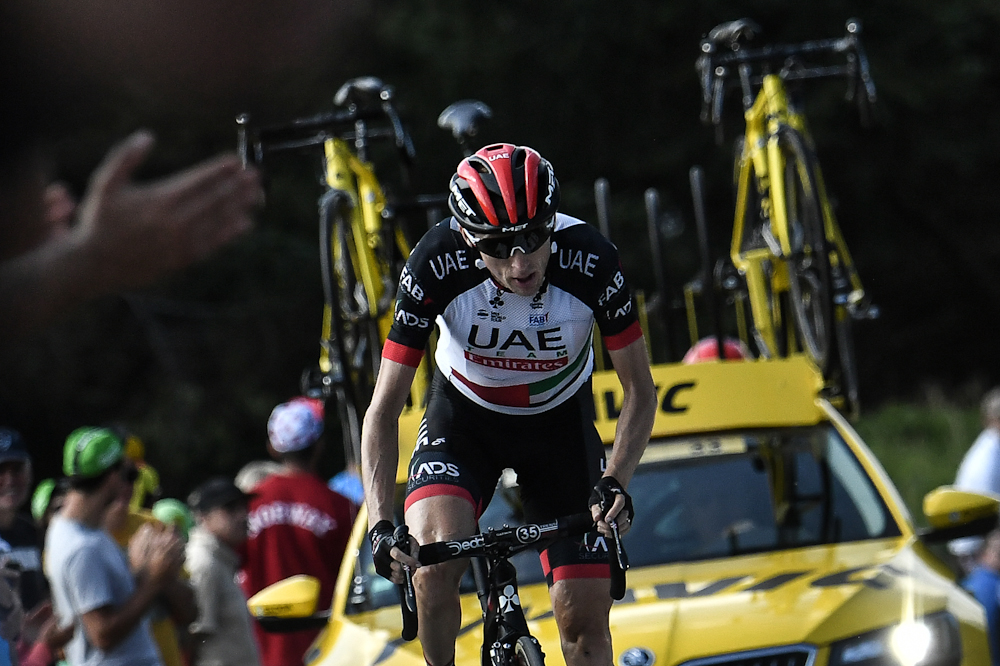
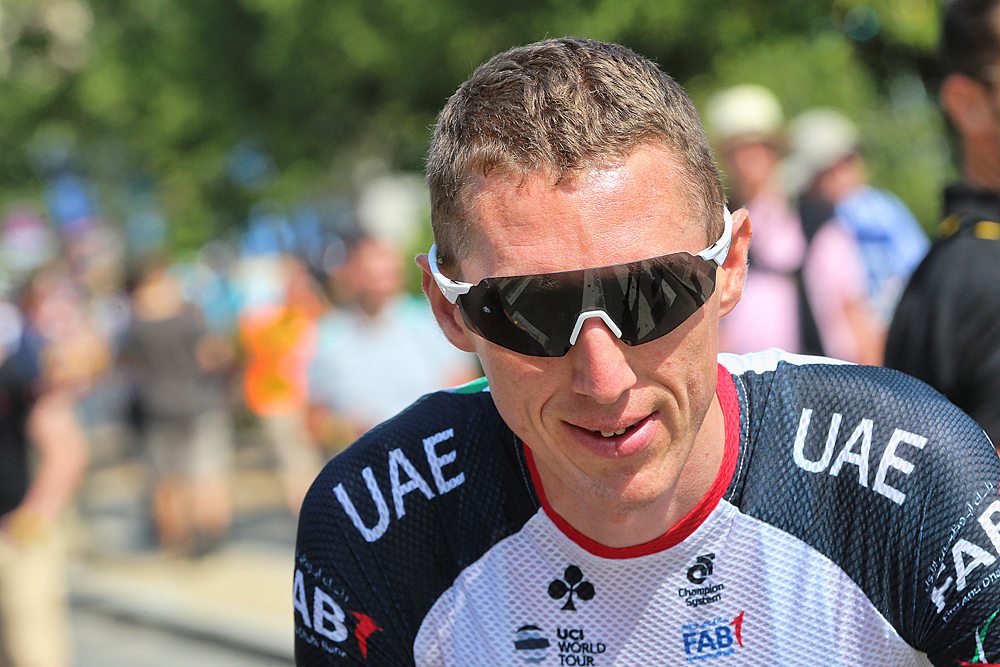
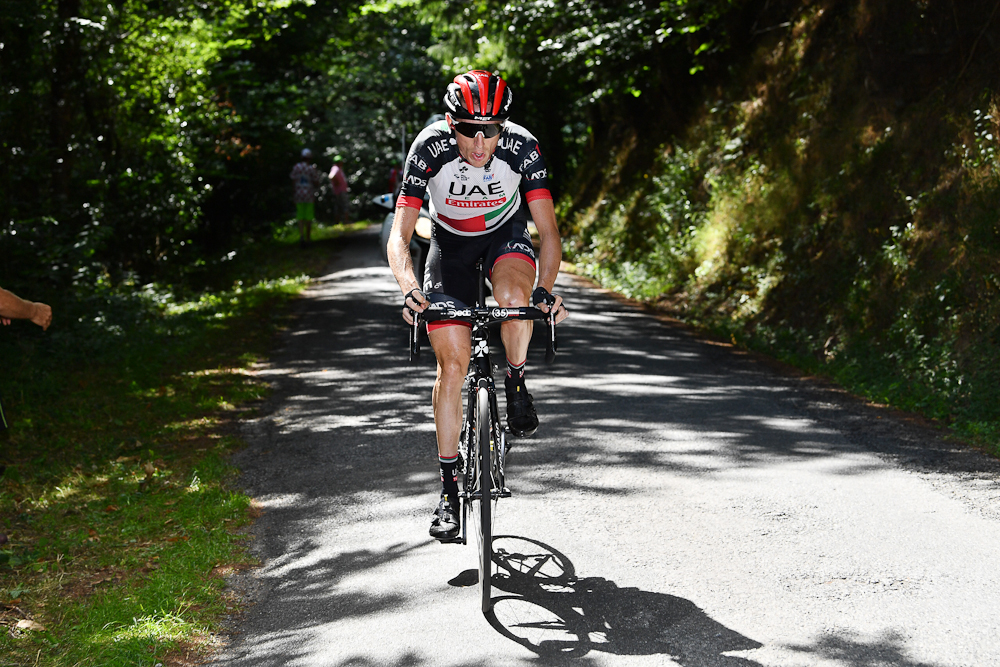
Dan Martin was the rider who sparked Nairo Quintana's winning move on stage 17 of the Tour de France, but the UAE Team Emirates rider could do nothing when Quintana surged on ahead of him. Martin did not give up, but after a hard chase he had to settle for second.
There was little doubt that Martin had pushed himself to the limit as he crossed the line. Still shaking from the effort, he leaned over his handlebars to try and catch his breath. The piece of road where he had stopped was sloping, however, and his tired legs were struggling to keep him where he was. He looked up to his soigneur and said "hold me" but he didn't hear what Martin had said and the rider began rolling down the hill until his soigneur and several journalists grabbed hold of his bike.
Martin said that he had struggled slightly at the high altitude, with the race reaching its highest point on the top of the Col du Portet. Martin had gone all in with 14 kilometres remaining but took Quintana with him and was unable to bring the Colombian back.
"I took advantage of Sky setting the tempo at the bottom of the climb. I was seven minutes down and so I thought they might let me go," Martin said of his attack. "Nairo came with me. I think he wanted to ride with me, but he went so hard that I settled into my own tempo turned it into a time trial to the top. The altitude got me at the end; it's pretty high up here. Nairo lives at 2,800m and so probably helps him. I was trying to keep him at 10 or 15 seconds, normally in the last 500 metres, I can close that gap. But at this altitude it was tough.
"I had a bad kilometre between three and four to go and he pulled the gap out and I couldn't close in the end."
Much was made of Wednesday's short stage and how explosive it could be for the overall standings. While it did plenty of damage, the main action was contained to the final climb. Always the aggressor in the mountains, Martin had hoped that he could light things up much earlier than he had done but the wind made it not worthwhile.
"I've felt really good in the last two or three days, that's a really good sign. I kind of planned to go earlier, that's why we put Darwin (Atapuma) and Kristijan (Durasek) in the break," he explained. "I wanted to go on the Val Louron-Azet. It's alright people saying, 'Attack early', but there was so much wind on those early climbs and you get so much help on the wheel that it's just not worth it. I had good legs and confidence in my legs, so I felt I could do a good last climb."
Get The Leadout Newsletter
The latest race content, interviews, features, reviews and expert buying guides, direct to your inbox!
This stage in particular held a special place in Martin's heart after having his first brush with the Tour de France in these same mountains almost 20 years ago.
"It was always going to be a special stage for me. I'll share an anecdote. My first experience of the Tour de France was in 1999," he said. "I stood on Val Louron after riding the Peyresourde and then stood on the Pla d'Adet. Racing over those same roads was pretty special."
Martin's efforts did gain him some time on the other general classification riders, and he moved from 10th to ninth, ahead of Jakob Fuglsang. He remains more than six minutes off the yellow jersey after a heavy crash and a poor team time trial lost him a lot of time in the first week of the Tour, while a puncture on stage 14 compounded the issue. Martin can't help thinking about what could have been but still takes solace in being able to fight back in the mountains.
"It's a pity we lost time in the crash and with the puncture, take that two and half minutes off and it could be a very different story this last week," he said. "But then again, you can never look back. I'm proud of how I've managed to get this consistency over three weeks and still be strong in the third week. To win a stage in the first week and almost win in the third week, with a crash in the middle, shows that I can handle three weeks of hard racing at the Tour de France."

Born in Ireland to a cycling family and later moved to the Isle of Man, so there was no surprise when I got into the sport. Studied sports journalism at university before going on to do a Masters in sports broadcast. After university I spent three months interning at Eurosport, where I covered the Tour de France. In 2012 I started at Procycling Magazine, before becoming the deputy editor of Procycling Week. I then joined Cyclingnews, in December 2013.